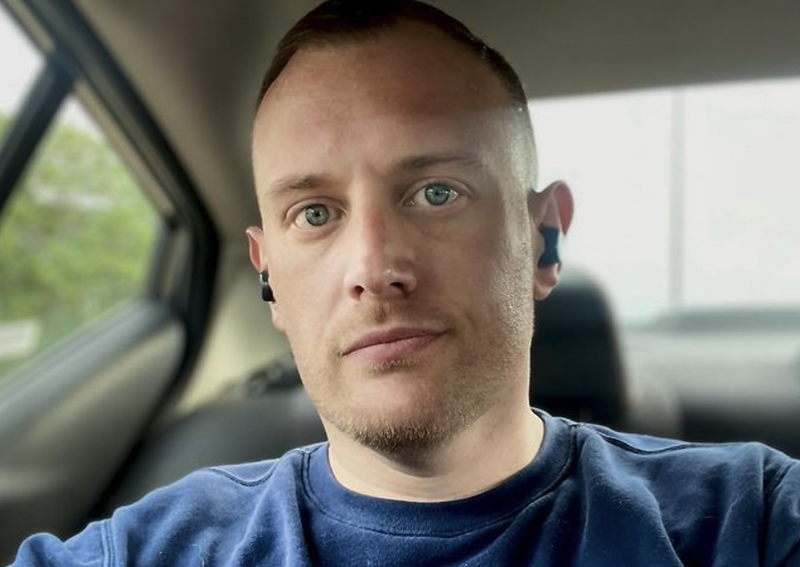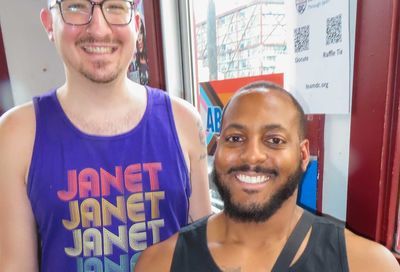UNAIDS Ambassador: Eliminating bans on gay sex are crucial to fighting spread of HIV
Lord Norman Fowler, who dealt with the AIDS crisis under Margaret Thatcher, says increased testing is the best way to reduce transmission of HIV.

The new UNAIDS ambassador says that eliminating bans on same-sex relations is crucial to fighting the spread of HIV — a comment sure to provoke negative reactions from leaders of countries with statutory prohibitions on homosexual sex.
Lord Norman Fowler, the former British health minister during the 1980s, who oversaw the United Kingdom’s response to the early days of the AIDS crisis, said that many people are unwilling to come forward for HIV testing in countries where homosexuality is criminalized, out of fear of being prosecuted and jailed — and in some cases, even sentenced to death.
In many countries, the laws date back to colonial times, when European rulers imposed such bans based on their own morals or religious beliefs.
“That’s going to have a vast effect upon any population,” Fowler said in an interview with Thomson Reuters Foundation, referring to the existing laws in 68 different countries that criminalize homosexuality. “It means they don’t come forward for testing and it means that they come forward far too late for testing.”
By eliminating punishments for same-sex relations, Fowler maintained, more people would get tested, which in turn would make them aware of their status and would enable them to take measures to protect themselves from transmission, or to seek treatment if they do test positive for HIV.
Fowler, who served as health minister between 1981 and 1987 under Prime Minister Margaret Thatcher, has a mixed record as it relates to LGBTQ issues. He supported Section 28, a law that barred local authorities from “promoting” homosexuality, which some activist have since criticized for censoring the free speech of LGBTQ groups and student-led organizations, and leading teachers in schools to promote an atmosphere of hostility towards the LGBTQ community. Others said it hindered HIV/AIDS education by causing local authorities to censor vital information on the virus and ways to prevent it, lest they be accused of violating the law.
The law was eventually overturned in 2003.
See also: Human rights body calls on Jamaica to repeal it colonial-era law outlawing gay sex
Fowler also voted against legislation to equalize the age of consent for same-sex relations. Prior to 1994, the age of consent for consensual same-sex relations between males was 21, and stood at 18 from 1994 until 2000, when it was lowered to 16, the same age at which heterosexual individuals can consent to sex. (Due to the gender bias of Victorian-era politicians, the age of consent for lesbians was never written into law, and thus, remained the same as the age of consent for heterosexual women.)
Fowler says he regrets his past political stances, admitting they were mistakes.
In his new role at UNAIDS, Fowler will be focused on highlighting efforts to reduce HIV infections — a difficult task at a time when the COVID-19 pandemic remains front of mind.
While HIV transmission rates have plummeted in more developed countries, 1.7 million people across the globe were infected in 2019, according to statistics from UNAIDS. And transmission remains a problem in less developed nations, particularly those that are not as open when it comes to discussing sexual health. In total, more than 38 million people are currently living with HIV.
“[T]he fact is that AIDS — in spite of all the heroic efforts that have been made over the past 20 years — remains an enormous problem,” Fowler said. “The issue of AIDS remains a very central one, and although it may not be as evident in Europe, it certainly remains very evident in whole swathes of the world.”
Read more:
Atlanta police warn robbers are using gay dating apps to target victims
Support Metro Weekly’s Journalism
These are challenging times for news organizations. And yet it’s crucial we stay active and provide vital resources and information to both our local readers and the world. So won’t you please take a moment and consider supporting Metro Weekly with a membership? For as little as $5 a month, you can help ensure Metro Weekly magazine and MetroWeekly.com remain free, viable resources as we provide the best, most diverse, culturally-resonant LGBTQ coverage in both the D.C. region and around the world. Memberships come with exclusive perks and discounts, your own personal digital delivery of each week’s magazine (and an archive), access to our Member's Lounge when it launches this fall, and exclusive members-only items like Metro Weekly Membership Mugs and Tote Bags! Check out all our membership levels here and please join us today!

























You must be logged in to post a comment.